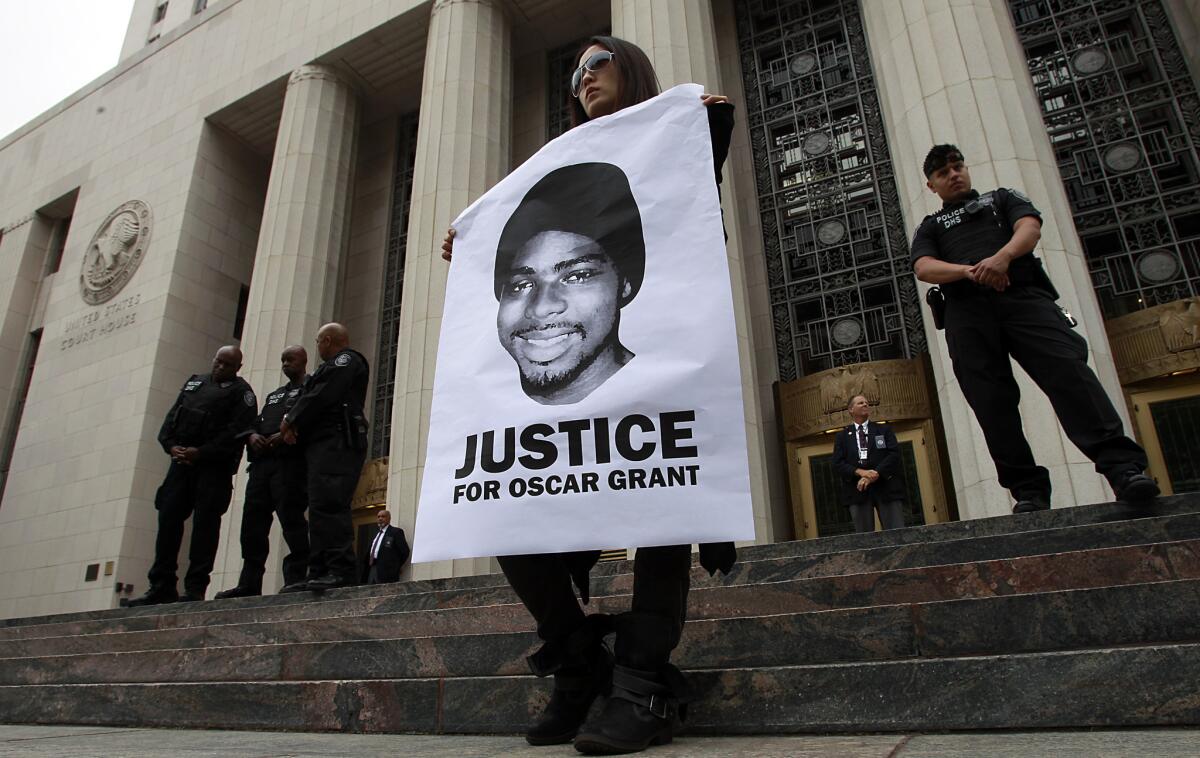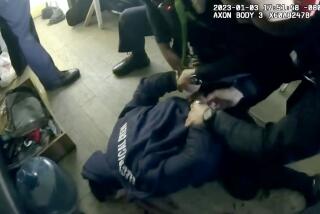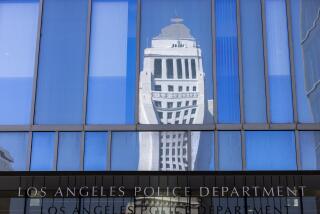Father of Oscar Grant loses lawsuit against BART officer

- Share via
Reporting from San Francisco — A federal jury decided unanimously Tuesday that the BART police officer who killed Oscar Grant III in 2009 owed no compensation to Grant’s father, who was in prison during his son’s life.
Oscar Grant II filed the civil rights lawsuit and sought damages for loss of his familial relationship with his son. The elder Grant has been serving a life sentence for a 1985 killing since before his son was born.
Michael Rains, who represented former BART Officer Johannes Mehserle, said the jury deliberated about four hours before deciding that Mehserle did not intend to shoot Grant and that the father and son lacked any sort of meaningful relationship.
The only evidence that the slain Grant had a bond with his father consisted of a single Father’s Day card and an undated letter from the son to his father, Rains said. There were no documented prison visits.
“There certainly wasn’t a close relationship at all if there was a relationship at all,” Rains said.
Mehserle, who testified during the three-week trial, cried when the verdict was read.
“He was emotional, he was really emotional,” Rains said. “Several jurors hugged him.”
The jurors included Latinos and Asians but no African Americans, according to Rains. The elder Grant attended the trial daily, returning to confinement each evening.
BART was not named as a defendant in the suit but provided for Mehserle’s defense. The transit agency previously agreed to pay Grant’s daughter $1.5 million, his mother $1.3 million, and $175,000 to friends of Grant who were detained at the station with him.
Waukeen McCoy, attorney for the elder Grant, said the jury ignored evidence that showed the father and son were close.
McCoy said Grant’s mother testified in a deposition that she took her son regularly to see his father in prison until the boy was 15. But McCoy said the jury disregarded that testimony because prison records contained only her name on a list of visitors, not their son.
Father and son “talked on the phone every month, and even every week sometimes,” McCoy said.
McCoy also expressed frustration that jurors did not find it significant that Mehserle did not immediately tell others after the shooting that he had intended to use his Taser.
“He never said that to anyone after the event happened until much later, until he hired Rains,” McCoy said.
Follow @mauradolan for news about California legal issues.
More to Read
Sign up for Essential California
The most important California stories and recommendations in your inbox every morning.
You may occasionally receive promotional content from the Los Angeles Times.











